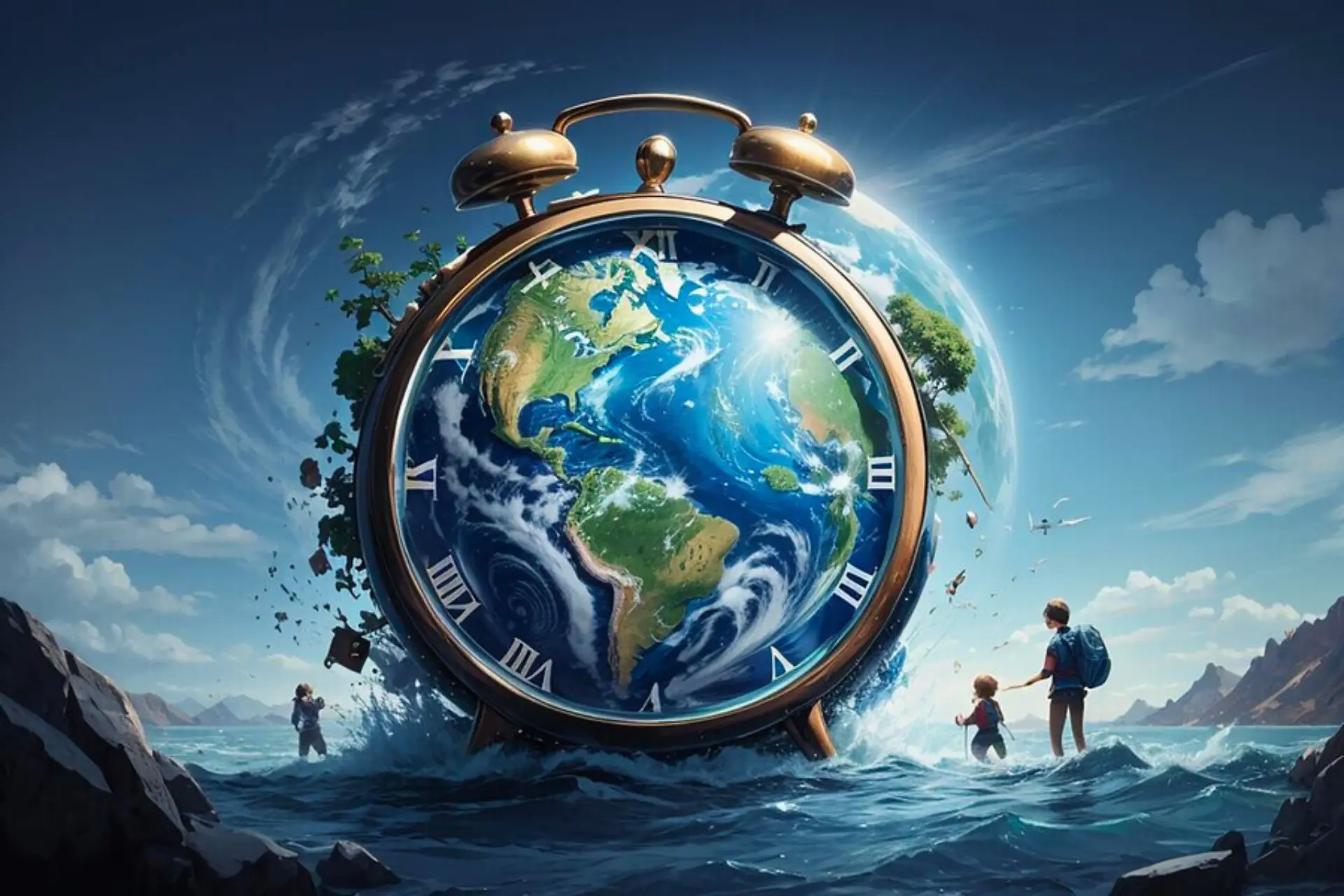Climate change is perhaps the defining issue of our time. With news filled with extreme weather events and dire predictions, it can feel overwhelming. This guide breaks down the essential science of climate change, debunks common myths, and provides clear steps everyone can take to combat this global challenge.
The Simple Science of Climate Change
Here’s the core of how climate change works:
- Greenhouse gases: Our atmosphere contains greenhouse gases, such as carbon dioxide (CO2), methane, and nitrous oxide. These gases trap heat from the sun, acting like a blanket around Earth. This is natural and vital to keep our planet habitable.
- Human activity: Since the Industrial Revolution, humans have burned vast amounts of fossil fuels (coal, oil, natural gas). This combustion releases additional greenhouse gases, particularly CO2, into the atmosphere.
- Excess heat: The increase in greenhouse gases traps more heat than our Earth system is designed to handle, leading to global warming and climate change.
Debunking Myths: Understanding the Truth
Many misconceptions about climate change exist. Here’s the reality behind a few common ones:
- Myth: “The climate has always changed, this is natural.” While our climate has naturally fluctuated over long periods, the current changes are happening at an unprecedented rate due to human activity.
- Myth: “Scientists are divided on climate change.” There’s overwhelming consensus among climate scientists that human activities are causing the planet to warm, and the consequences are severe.
- Myth: “Individual actions don’t matter.” While systemic changes are crucial, individual choices collectively create a significant impact.
What Does Climate Change Mean For Our World?
Climate change is not a distant threat. It’s already happening and has profound effects:
- Rising temperatures: Global average temperatures are rising, leading to heat waves, droughts, and more extreme weather events.
- Melting ice and rising sea levels: Land ice is melting at an alarming rate, leading to sea level rise, coastal erosion, and threats to communities.
- Ocean acidification: Increased CO2 in the atmosphere is absorbed by oceans, causing them to acidify, harming marine life and ecosystems.
Actionable Steps: What Can You Do?
Facing the reality of climate change, you might feel helpless. However, you can make a difference! Here are steps you can take:
- Get informed: Educate yourself from reliable sources like the IPCC reports (Intergovernmental Panel on Climate Change) or [reputable climate science organizations].
- Reduce your carbon footprint: Lower your energy use, choose public transportation or carpooling, and eat less meat to reduce your individual emissions.
- Support renewable energy: If possible, switch to renewable energy sources (like solar) or support companies that prioritize clean energy sources.
- Make conscious choices: Choose products with less packaging, compost food scraps, and consider your consumption and travel habits.
- Get politically active: Contact your representatives and demand climate action. Encourage your community and workplace to adopt sustainable practices.
Monetization Strategies
This blog provides multiple avenues for potential monetization:
- Affiliate Marketing: Partner with brands offering sustainable products, energy-efficient appliances, or resources for reducing your carbon footprint.
- Sponsored Content: Collaborate with clean energy companies, organizations promoting sustainable lifestyles, or educational platforms.
- Educational resources: Create and sell downloadable resources like “Climate Action Checklists” or guides on calculating your carbon footprint.
- Courses or Workshops: Offer online or in-person courses on climate science basics or actionable steps for individuals.
Remember: While climate change is a huge challenge, individual actions combined with collective efforts are essential for a better future. By understanding science and taking informed action, we can contribute to creating a more sustainable and healthy planet for ourselves and future generations.






